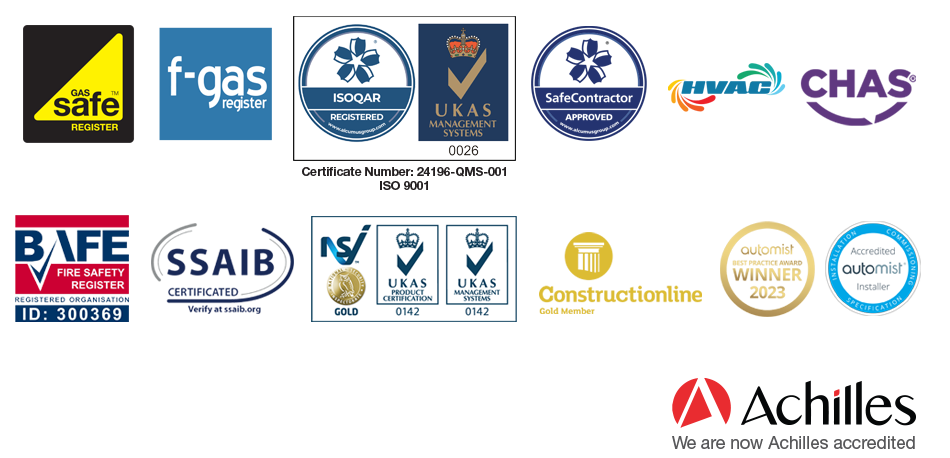Energy bills.
At the moment, those two words can cause panic in pretty much everyone in the UK. The cost of energy has continued to rise month on month, despite energy companies reporting record profits year on year. But it’s just homeowners that are worried about their energy use – businesses all over the UK are also feeling the pinch of the energy crisis, and looking for ways to bring the cost of running their business back down. One of the main ways you can do this is by understanding what exactly your energy bill is paying for, and what steps you could take to reduce it.
The 2 Key Charges
On the face of it, your energy bill should look very simple. It’s made up of the unit cost and the standing charge. The unit cost is the amount you pay for each unit of gas or electricity used, and is measured in kWh. The standing charge is the cost you pay each month to have energy physically supplied to your premises and kept connected to the energy network. It’s no different to your home energy bills there, and in theory, that should be all you pay, and it will certainly be all you see on the bill. But as we know, theories aren’t always correct.
Extra Costs For Businesses
There are actually a few other costs involved in business energy that contribute to what you pay overall as well. While some are region or industry-specific, the universal charges include:
Business energy wholesale costs: This is the amount the energy supplier pays to buy energy in bulk before selling it on to customers. You won’t see this as an individual item on your energy bill, but it will make up a part of your unit rate. Unless you’re on a fixed rate tariff, your energy bills will usually go up when the wholesale cost of energy does.
Transmission Use of System charges: Also known as TNUoS. This covers the cost of maintaining and upgrading the National Grid. It’s usually included in the standing charge.
Paying for Distribution Use of System: Or DUoS. Distribution Network Operators are licensed by Ofgem, and they are the people who distribute electricity in your area. This charge covers the costs incurred by your DNO, and will vary depending on the type of contract you have, your meter type, your location and your time of use.
Climate Change Levy: This is a charge the government brought in a few years ago to encourage businesses to become more energy efficient and reduce their carbon footprint. This cost is charged per unit of energy, and will be factored into your overall bill. If you use small amounts of energy (less than 33kWh a day), you use energy for domestic purposes (like accommodation or schools), or are a charity, then you don’t have to pay this levy.
VAT: Most businesses are charged VAT at 20% on gas and electricity, and this will be automatically added to your energy bill. The good news is, you can claim it back, if you are VAT registered! And if you are a charity, use an average of less than 33kWh per day, or use at least 60% of your energy for domestic purposes, you’re eligible for a reduced VAT rate of 5%.
Can I Reduce My Energy Bill?
Obviously, with energy prices as high as they are, you want to do everything you can to bring that energy bill down and keep your business running smoothly. The good news is, you can find some pretty significant savings just by changing how you approach powering your HVAC systems.
Most commercial HVAC systems are still powered by electricity, which means paying energy companies for the privilege. But if you switch to a heat pump, you will find your energy bill plummets pretty quickly. They work by absorbing thermal energy from a low-grade source (air, water or the ground), and transferring it to a heating element before dispersing it through the heating and hot water system. This unique design means that the heating process can cost you anywhere from 25% to 60% less than using a traditional boiler, significantly reducing your energy bill. Plus, they’re a low-carbon option for powering your building, which means you are doing your bit to combat climate change as well!
If you want to really cut down (or even eliminate) your energy bill, then your best option is to pair a heat pump with solar panels. This allows you to draw solar energy in and convert it into electricity, which you can then use to power your HVAC system and your building as a whole. You can also purchase batteries to store excess electricity for when you need it, or even sell the spare power back to the National Grid!
While the initial installation cost of these solutions might be big, so is the impact they can have on both your energy bills and the environment. Depending on the size of your building, you could effectively eliminate your energy bills, leaving you free to spend that money on growing your business. At Bonus Eventus Maintenance we are passionate about saving you money and saving the environment, so if you would like to talk about heat pumps, solar panels or carbon-neutral solutions, just get in touch to find out how we can help.

